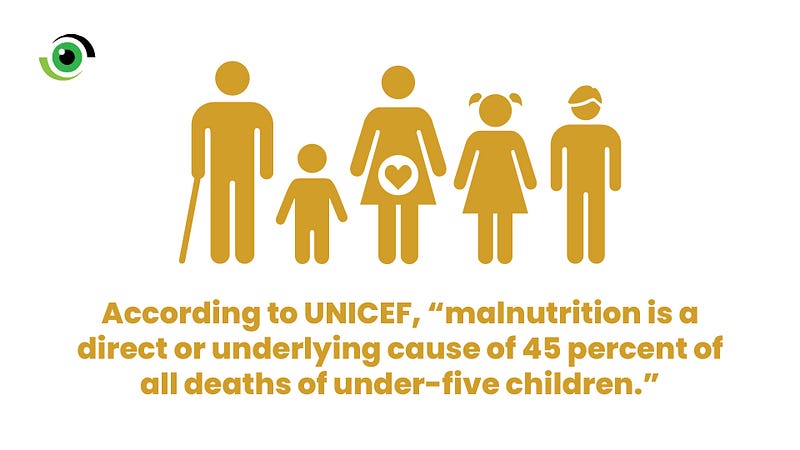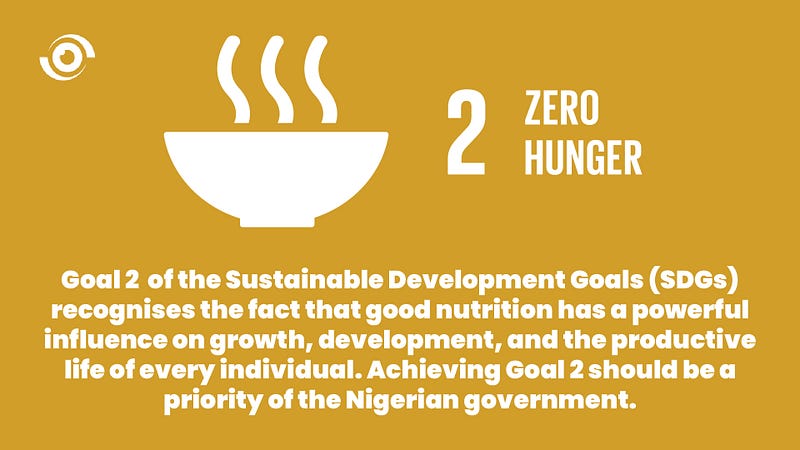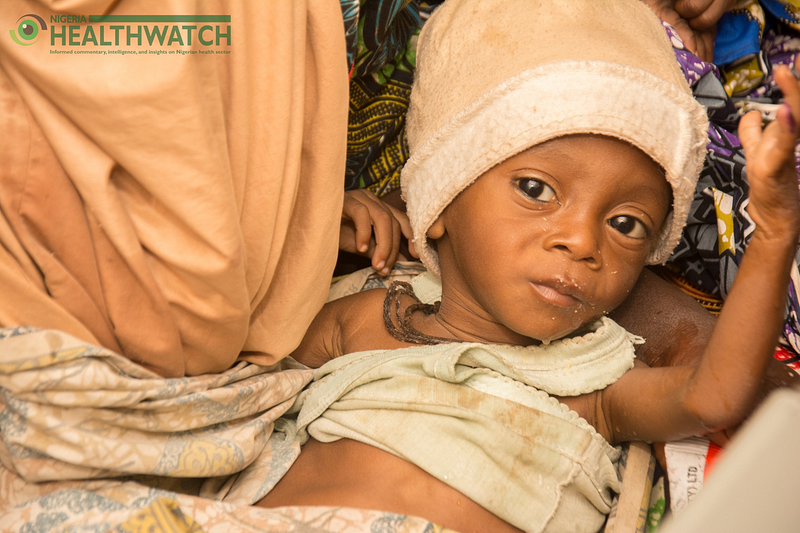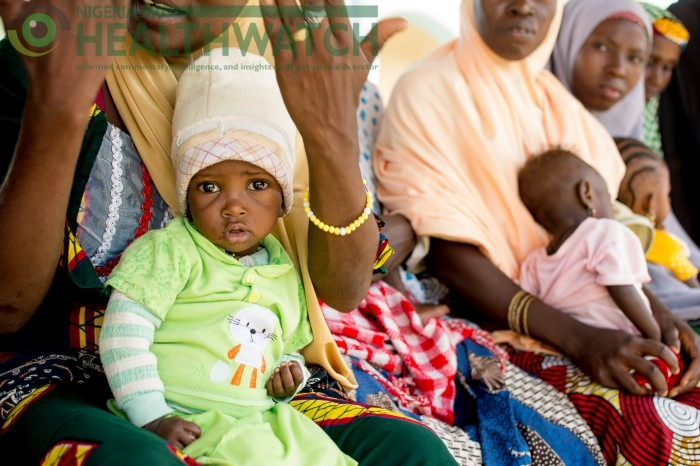The COVID-19 pandemic has not just exposed the fragile nature of the health systems of most developing countries, including Nigeria, but has worsened other related health issues in the country, including malnutrition. Malnutrition and other nutrition–related issues continue to be of public health concern in Nigeria, especially impacting women and children.
According to UNICEF, “Malnutrition is a direct or underlying cause of 45 percent of all deaths of under-five children” In the 2020 Global Nutrition Report, Nigeria was rated just below India, as having the second highest burden of stunted children in the globe, with an estimated 13.9 million children. Despite the dismal numbers, malnutrition in children has not seen enough urgent action in Nigeria.

From advocacy to action
Many individuals and organisations including Nigeria Health watch have made the case for policy makers to prioritise adequate funding for nutrition in Nigeria, tackling the problem of malnutrition. The country may have recorded some progress, yet too many children continue to be adversely affected by malnutrition. The current COVID-19 pandemic has shown that if there is a right time for the government and stakeholders to work towards achieving Sustainable Development Goal 2, focused on ending all forms of hunger by 2030, the time is now.
Empowering Nigeria’s women
Many factors in our polity such as man-made conflicts, economic recession, illiteracy and gender inequality have been attributed as causes as well as effects of hunger and malnutrition in Nigeria. The most vulnerable in our population — women, especially pregnant women and children are at a higher risk of malnutrition, especially in households that do not have food security.

These devastating effects of malnutrition in women, most especially pregnant women and breastfeeding mothers, has ripple effects on society, leading to an intergenerational cycle of hunger that can continues to worsen maternal and new-born statistics.
This makes it glaringly important to empower women and girls, while working to scale up national nutrition programmes. There is also a need to keep promoting gender equality in our system because there is evidence that by empowering and educating girls and women , there is a reduced risk of acute and chronic undernutrition and malnutrition among vulnerable women and children.
Nigerian women need to be empowered with education about the nutritional values of different locally sourced foods. In many communities, women are often responsible for providing food for their homes. Besides education these women also need to be empowered with financial tools to sustain the nutrition of their families. There is a link between gender empowerment and nutrition, because women strive to enhance the nutrition and health of their households, whenever their income rises.

Building strong partnership among critical stakeholders
Fighting malnutrition sustainably requires the collective efforts of the public and private sectors. The government should create policies through which the private sector and partners collectively develop and implement programmes to improve Nigeria’s nutritional standards. Lasting and sustainable solutions to malnutrition in children in Nigeria depends on different sections of government working together with concerned critical stakeholders.
This includes building well defined and strong partnerships with organisations that have been implementing interventions to improve malnutrition indices in Nigeria, like UNICEF who have been supporting the education of children and counselling of mothers and caregivers on how to adequately feed and care for children. Alive & Thrive (A&T) has been providing free micronutrient supplements to children and pregnant women, focusing on ensuring adequate nutrient intake for infants and young children during the period of complementary feeding. The civil society organisation, CS-SUNN, has been advocating for effective coordination of all nutrition stakeholders and programmes in Nigeria. State and local governments need to allocate more funds for nutrition programmes with the goal of paving the way for improved nutritional outcomes.

Government involvement in tackling malnutrition in Nigeria
No amount of advocacy can truly solve the problem of malnutrition in Nigeria, without the strong commitment and involvement of national and state governments. It is the duty of a responsible government at all levels to enact and implement sound, viable and realistic economic policies to mitigate high levels of poverty, which is the major cause of under-nutrition and malnutrition.
SDG 2 recognises the fact that good nutrition has a powerful influence on growth, development, and the productive life of every individual. Achieving SDG 2 should be the priority of the Nigerian government at all levels. Since the National Strategic Plan of Action for Nutrition (NSPAN) is a robust government policy on nutrition, more focus should be placed on implementing nutritional policies and interventions that have proven to be cost-effective and feasible. Also, Federal, State and Local governments should embark on programmes, with sustained funding that guarantees the availability of proper nutrition for its citizens, especially vulnerable communities, in order to create a society where no child will die as a result of malnutrition and hunger. Every child in Nigeria deserves a healthy life.
Have you reviewed the NSPAN? What other measures do you think that Nigeria can adopt to achieve SDG 2? Share your thoughts with us in the comment section below or on social media, @nighealthwatch on Twitter.


